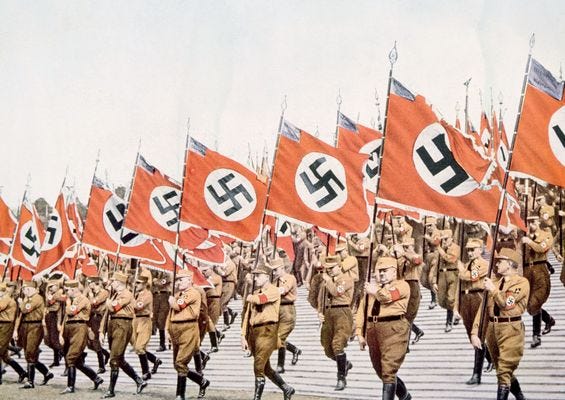When Hitler used Made Emergency Powers to Dismantle Democracy
How Hitler’s exploit of a manufactured crisis warns us that emergency powers, wielded too freely, can destroy statehood
Hey Small Biters,
Adolf Hitler rose to power in Germany in 1933 not by brute force alone, but by exploiting a sham crisis of public safety. Three weeks after becoming chancellor, the Reichstag burned. Hitler and his allies portrayed it as a Communist uprising—though evidence remains murky. What followed was alarming: President Hindenburg used an emergency decree to suspend civil liberties and political opposition, paving the way for authoritarian rule.
This wasn’t a spontaneous transformation. It was legal theater performed in the name of security. The decree’s second paragraph allowed the Reich government to take direct control over state governments that failed to restore order—formalizing what became the legal scaffolding of dictatorship.
One of the key targets was Bavaria, under Minister President Heinrich Held, a former jurist and committed federalist. Held understood that the decree threatened Germany’s federal structure. He had warned President Hindenburg privately that granting such power would shatter state autonomy.
Tension rose as Hitler summoned Reichswehr, SA, and SS units to intimidate Bavarian leaders into submission. Shock tactics in Munich—camped troops, street rallies, political infiltration—created a sense of false disorder. Hitler was using violence he instigated to justify taking control .
Keep reading with a 7-day free trial
Subscribe to Small Bites to keep reading this post and get 7 days of free access to the full post archives.



